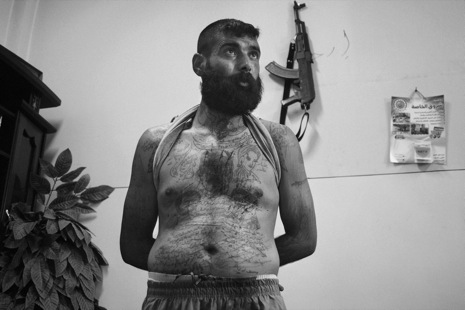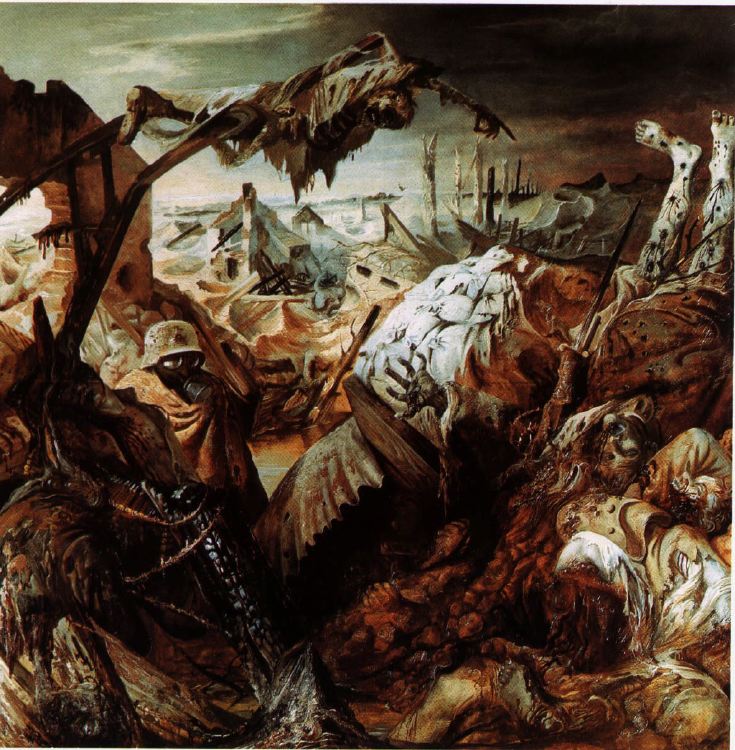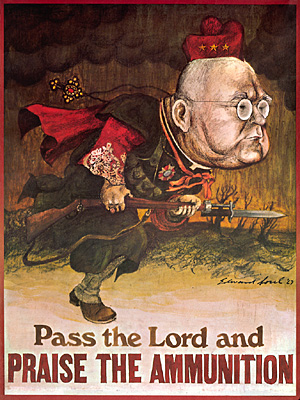Vietnam, Iraq, Afghanistan. What next? How much the academic think-merchants should share in the responsibility for these messy predicaments is not really quantifiable. But judging from what he read and see, the American government would have found a better guide to action in the works of Karl von Clausewitx, a Prussian major general who died in 1831…
The wars of the time were often cautious and inconclusive because monarchs wanted to husband expensive manpower and scarce resources. Army manoeuvres were primarily defensive and organised around the forts that still dotted the European countryside. The speed of war was dictated by the speed of men and draft animals. Cast iron siege weapons had to be dragged to the field, accompanied by great wagon trains of supplies to feed the beasts that dragged the weapons – for example, it took 16000 horses and 3000 wagons to drag the 18 heavy guns and 20 siege mortars of the Duke of Marlborough’s army in 1708….

—A NATO air campaign helped Libyans topple Moammar Kadafi last year, but as the prospect for similar intervention in Syria dimmed, some openly said they would welcome a group like Al Qaeda to help them get rid of Assad. Fighters who witnessed and later described the beheading made it clear that they welcome help from any quarter but that they were uneasy with some of Al Nusra Front’s methods.
International concern about such groups rose after twin car bombings in May killed 55 near a military intelligence complex in Damascus, the capital. The Free Syrian Army disavowed the attack. There were conflicting reports about whether Al Nusra Front had claimed responsibility.—Read More:http://www.latimes.com/news/nationworld/world/la-fg-syria-foreign-fighters-20120826,0,1647646,full.story image:http://kjwww.tumblr.com/
Yet despite the economic backwardness of eighteenth-century Europe, the impact of the Enlightenment on military theory is incontestable. The most lasting legacy of the early military theorists was the military academy. The age of reason had spawned the idea that war should be studied, and academies were set up…Read More:http://www.clausewitz.com/readings/CaleReview.htm
Clausewitz saw varied service in the first great conflict of modern times, in which the limited formalized warfare of the eighteenth-century was swept away by Napoleon, himself the embodiment of will power in violent action and backed by the mobilized moral and material resources of the largest nation in Europe. As a staff officer, Clausewitz had had the opportunity to observe and reflect on war as well as to organize its conduct. He also knew by firsthand experience at Tauroggen the no-man’s land between strategy and policy. His experience helped him gain insight into both the nature of war and human behavior under the stress of conflict.

Otto Dix Trench warfare. 1932.—“The Syrian conflict serves as a magnet for these groups,” said Andrew Tabler, senior fellow at the Washington Institute for Near East Policy who is in Antakya, Turkey, near the Syrian border, meeting with opposition figures. “But, and this is important, they’re still an extremely small part of the groups that are fighting the Syrian regime.”
As the conflict drags on, though, their number is likely to grow, he said.
Tabler described Al Nusra Front as “an Al Qaeda-affiliated group” that is recognized by other such groups and mentioned in their online forums.
Whether or not they are connected to larger groups, the conflict between mostly Sunni fighters and Assad’s regime, which is dominated by Alawites, an offshoot of Shiite Islam, has lured some foreign Islamic militants who see it as an obligation to help oppressed Sunni Muslims.
Read More:http://www.latimes.com/news/nationworld/world/la-fg-syria-foreign-fighters-20120826,0,1647646,full.story
On War appeared in 1832, a year after Clausewitz’s death as a result of cholera contracted while serving with an army of observation in Poland. He had nowhere near finished it. Of the eight books into which the massive work of more than a thousand pages is divided, only Book I was regarded by Clausewitz as being in its final form. Much takes the form of disconnected notes on particular topics, occasionally opaque and confused in language, and as a whole, the work is rambling and repetitious and even, at times, contradictory. As he himself admitted, the manuscript “can only be called a mass of conceptions not brought into form and open to endless misconception.”
Clausewitz covers almost every aspect of war, from its philosophical nature and its role in human affairs to minor tactics, and throughout he offers illuminating insights, brilliant generalizations, and excellent common sense.It would be impossible to summarize the richness and complexity of his thought.

—Spellman was a strong supporter of US involvement in the Vietnam War — he advocated for involvement in the 50s. He was such a hawk that he apparently baptized bombers, and at a prayer breakfast at the White House, he encouraged LBJ to “just bomb them”. His hawkishness was so out of step with the Vatican that he was chastised by the pope. His attitude about Vietnam was caricatured by artist Edward Sorel…Read More:http://muffinlabs.com/content/how-god-made-you/
In treating warfare itself, strategy, and the conduct of war, Clausewitz was at pains to demolish the school of late eighteenth-century theoreticians who had reduced war to geometric formulas in which victory went automatically and bloodlessly to the commander with the correct angles between his base, his army, and the enemy, or to the one who occupied certain geographic points. Clausewitz has warnings for all armchair strategists:
War is the province of uncertainty: three-fourths of those things upon which action in war must be calculated, are hidden more or less in the clouds of great uncertainty. Here, then, above all a fine and penetrating mind is called for, to grope out the truth by the tact of its judgment. …War is the province of chance. In no sphere of human activity is such a margin to be left for this intruder, because none is so much in constant contact with him on all sides. He increases the uncertainty of every circumstance, and deranges the course of events. …Now, if it is to get safely through this perpetual conflict with the unexpected, two qualities are indispensable: in the first place an understanding which, even in the midst of this intense obscurity, is not without some traces of inner light, which lead to the truth, and then the courage to follow this faint light. The first is figuratively expressed by the French phrase coup d’oeil. The other is resolution. …Read More:http://www.clausewitz.com/readings/OnWar1873/BK1ch03.html
In a vivid metaphor Clausewitz explains the difference between flawless paper planning and real war: “Activity in War is movement in a resistant medium. Just as man immersed in water is unable to perform with ease and regularity the most natural and simplest movement, that of walking, so in War,with ordinary powers, one cannot keep even the line of mediocrity.”
To such factors as exertion, uncertainty, error and danger in real war, CLausewitz gives the general term “friction.” It is one of his most illuminating concepts, explaining why even brilliant victories never go quite as hoped, why offensives lose their force, why “decisive” weapons or expedients so rarely lead to decisive results, why wars always go on longer than most people believe they will. In Clausewitz’s view , only tow things serve to overcome friction: the will of the commander and the inurement of his army to war.





 COMMENTS
COMMENTS